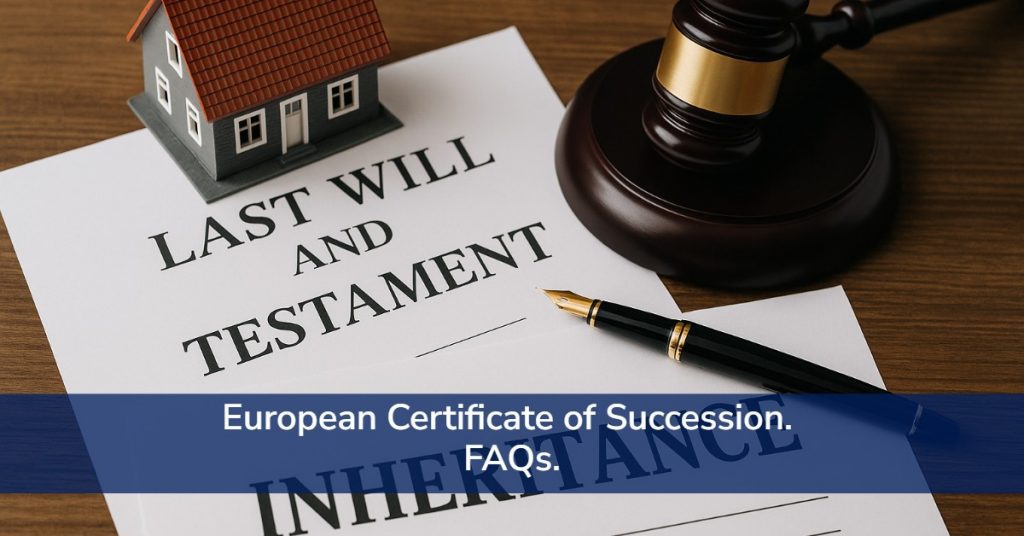In an increasingly interconnected world, inheritances involving assets or individuals in different countries are becoming more common. When a person passes away leaving properties in multiple countries, managing the succession can be complex. To simplify this process, heirs can use a mechanism that allows them to demonstrate their rights before the authorities of different member states. In this article, we address the most important questions about the European Certificate of Succession (ECS) in a clear question-and-answer format.
What is the European Certificate of Succession (ECS)?.
The ECS is an official document issued by the competent authority of an EU member state. It certifies the status of heir, legatee, or administrator of an estate and allows these individuals to exercise their rights over estate assets in other member states without the need for additional recognition procedures.
Who can apply for it?.
The certificate can be requested by heirs, legatees, executors or testamentary trustees, or administrators of the estate. The application must be submitted to a notary or competent authority in the state where the succession is being processed.
What information does the certificate contain?
The ECS may include: identification of the deceased and beneficiaries; the status and rights of each heir or legatee (including inheritance shares); allocation of specific estate assets; powers of executors or administrators; applicable succession law; and marital property regime (if relevant), among other details.
Is obtaining the European Certificate of Succession mandatory?.
No, it is a voluntary document. However, it greatly facilitates the management of international inheritances, as it avoids lengthy recognition procedures in other member states.
Does it have effect in all EU countries?.
The certificate is automatically recognised in all member states except Denmark and Ireland, where Regulation 650/2012 does not apply.
Can the heirs of a British citizen with assets in the EU apply for a European Certificate of Succession?.
Yes. When a British citizen dies leaving assets in different EU member states, their heirs may apply for a ECS to certify their status and manage the inheritance more efficiently in those countries. This applies even if the deceased had a will in Spain but did not appoint heirs for assets in other member states, such as France or Austria.
Is it necessary to apostille or legalise the certificate?.
No. The ECS has direct legal effect in all applicable member states without the need for an apostille or other legalisation procedures.
Can it be registered in public records?.
Yes. The ECS constitutes a registrable title and may be used to record the transfer of assets in the relevant public registers of the corresponding member state.
Can the certificate be corrected or revoked?.
Yes. If it contains material errors or if any part is shown not to reflect reality, the notary may correct or revoke the ECS. Interested parties who have received an authentic copy will be notified of any changes.
Conclusions.
The European Certificate of Succession is a key tool for cross-border inheritances. It provides legal certainty, evidentiary effectiveness, and the ability to register assets in public registers. At White-Baos Abogados, we are experts in inheritance and private international law. If you need assistance with a cross-border succession, do not hesitate to contact us for expert and personalised legal advice.
The information provided in this article is not intended to be legal advice but merely conveys information relating to legal issues.
Carlos Baos (Lawyer)
White & Baos.
Tel: +34 966 426 185
E-mail: info@white-baos.com
White & Baos 2025 – All Rights Reserved.
